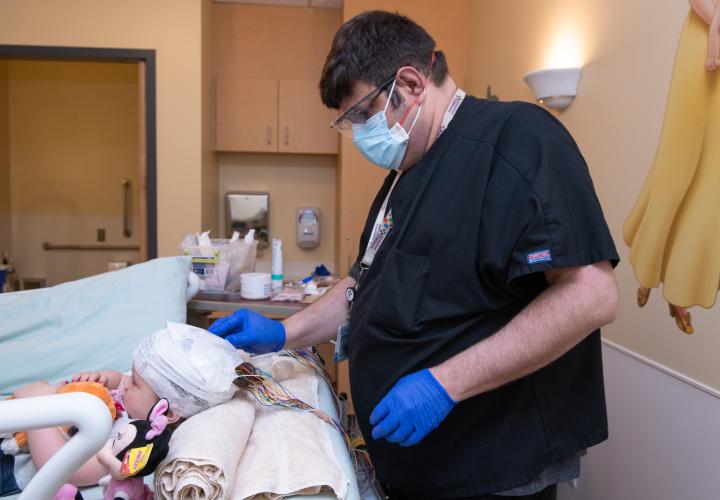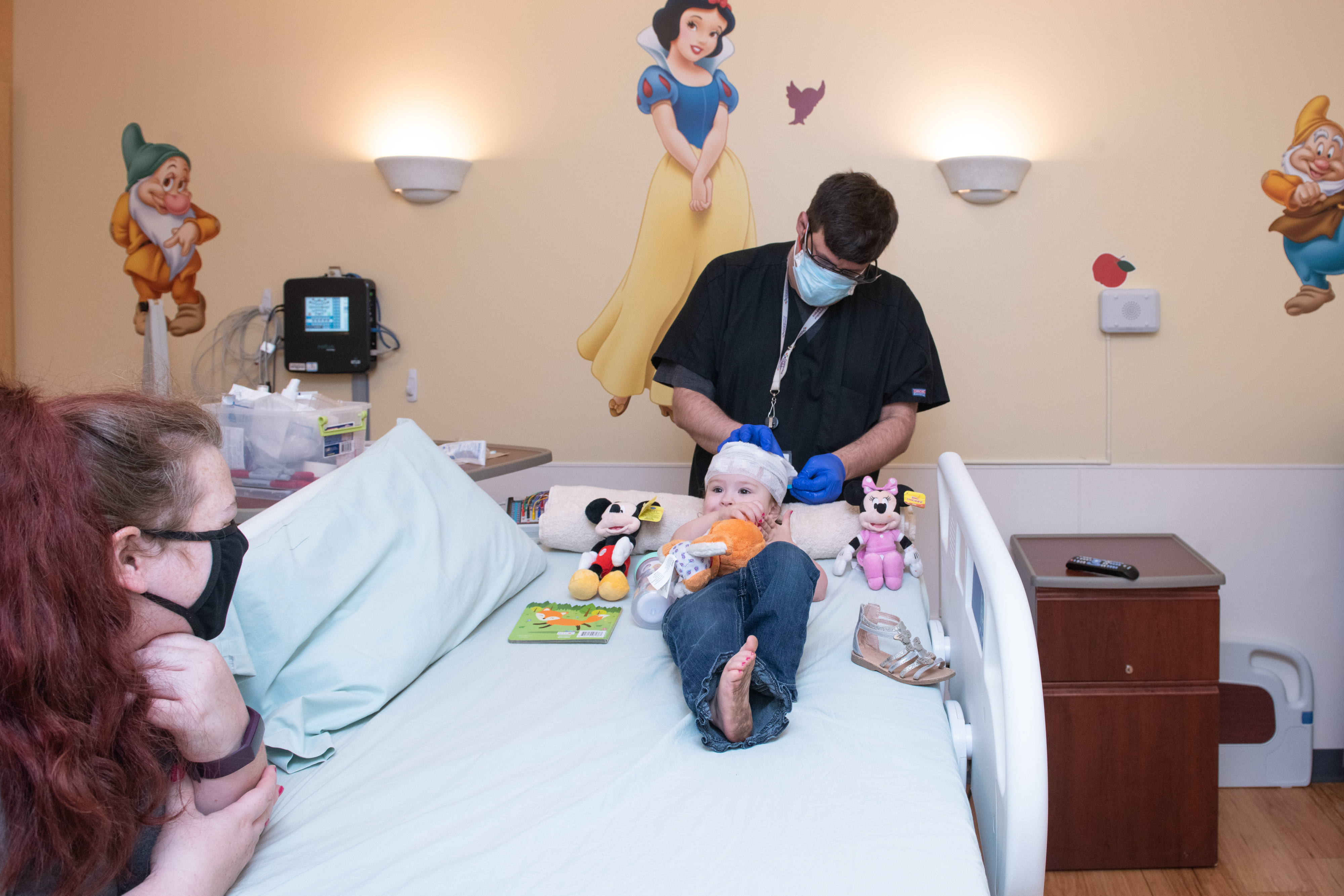Why choose Connecticut Children’s Sleep Center
When your child is experiencing sleep issues, turn to the team with decades of experience diagnosing and treating pediatric sleep disorders. The Sleep Center is accredited by the American Academy of Sleep Medicine, and we use polysomnography, a type of sleep study, to identify sleep problems. Patient rooms in our sleep labs are designed to make your child’s stay as comfortable as possible. Additionally, we offer sleep psychology services for patients who have trouble falling or staying asleep.




